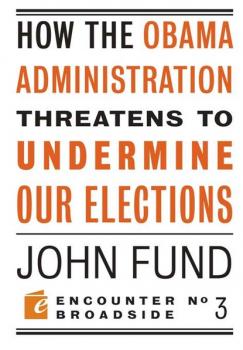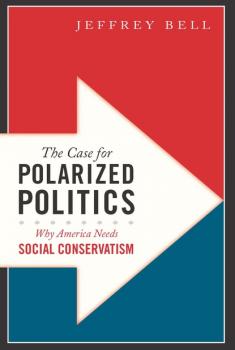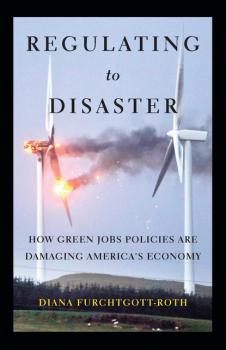MREADZ.COM - много разных книг на любой вкус
Скачивание или чтение онлайн электронных книг.Obama and America's Public Sector Plague
Public-sector employees enjoy much more generous pay and benefit packages than private-sector workers, including guaranteed pensions and retiree health benefits whose long-term costs threaten to break the backs of state and local taxpayers. In this provocative Broadside, E.J. McMahon explains how the policies of the Obama administration have shielded most state and local government employees from the worst effects of the Great Recession. President Obama’s stimulus bill helped most states and local governments continue raising average employee pay even at the depths of the downturn. In the name of promoting “economic recovery,” the president wants to spend tens of billions more to prop up government payrolls and preserve cushy employee benefits. Meanwhile, public-sector labor unions are exploiting their influence in Washington in an bid to expand and strengthen their power throughout the country. The president’s push for more federal spending to preserve the status quo in state and local government is a wasted opportunity to promote much-needed structural reform.
Obama's Education Takeover
President Obama has laid the groundwork for an unprecedented centralization of education policy under the guise of promoting educational innovation, accountability, and improved student achievement. In reality, Obama’s new national standards, curricula, and testing – in addition to huge spending commitments by the federal government ¬– shift the policymaking power from individuals and communities to the federal bureaucracy.In this Broadside, Lance Izumi examines Obama’s education policies and shows us why Americans must protect and promote the power of individuals, especially parents, to control children’s education. We should look to the revolutionary school-choice and parental-empowerment laws passed by key states and other nations such as Canada. While Obama is pushing American education in the wrong direction, we can steer it back to local control.
How the Obama Administration Threatens to Undermine Our Elections
One of the easiest ways to increase public cynicism about elections is to change the rule book to make the laws governing how we vote more vague and less rigorous. “Reforms” have been passed amid claims they would increase voter turnout. They haven’t – but they have made it easier to commit absentee ballot and other fraud.<BR><BR>In this explosive broadside, John Fund exposes the new package of reforms being pushed by Obama and liberals in Congress. First, the White House has declared it will exercise oversight of the Census next year, compromising the apportionment of Congressional seats and federal dollars. On top of that, liberals in Congress are pushing for “universal voter registration,” a reform that is already used in a half dozen states but has only resulted in serious fraud.<br><BR>Making it easier to vote is a worthy goal. But pushing dubious measures puts the very foundation of our democracy at risk.
The Case for Polarized Politics
No movement resembling American social conservatism exists anywhere else in the world of affluent democracy encompassing western Europe and Japan. This simple, undeniable fact has led many commentators to treat social conservatism as a “retro” movement soon to disappear in the U. S. as well, an inevitable (if lagging) casualty of global modernization.Author and political activist Jeffrey Bell argues that social conservatism is uniquely American because it is in reality an outgrowth of American exceptionalism. It exists here because the founding principles of the United States—centering on the belief that humanity receives its equal rights directly from God rather than from government—retain a mass following among American voters, even in the wake of abandonment of belief in America’s theistic founding by elites and institutions that once espoused it. This allegiance to the founding, rather than some quasi-theocratic project by what is frequently misnamed the “religious right,” accounts for social conservatism’s comparatively recent birth and persistent strength in U. S. politics—and also for its absence in societies whose foundings were not rooted in the universality of God-given human rights.Bell argues that a worldwide upheaval in the 1960s set the stage for the rise of social conservatism, which had no earlier political existence. The 1960s upheaval resulted in the triumph of the social agenda of the left, particularly the sexual revolution, among elite opinion in the United States as well as in Europe, Japan and elsewhere. In subsequent decades the global left has sidelined its century-long drive for socialism and returned to its late-eighteenth-century roots in the thought of Jean-Jacques Rousseau and the radical French revolutionaries known as the Jacobins, who believed human fulfillment depends on liberation from most civilized institutions, particularly organized religion and the family.Despite the many predictions of its demise, social conservatism has gained and held popular strength in the U. S. because of its roots in a theistic version of the European enlightenment of the 17th and 18th centuries, which Bell describes and analyzes as the “conservative enlightenment.” It is a rich, optimistic belief system that not only dominated the American founding but transformed society in the English-speaking world and remains an attractive alternative in the eyes of many of the world’s peoples—certainly in comparison to the competing universalisms advocated by the left enlightenment and by the anti-egalitarian Islamic revival. The ability of social conservatism and of its parent, the conservative enlightenment, to revive and spread this natural law-centered democratic vision could reshape the battle of ideas that increasingly defines our post-Cold War world.
Peace, They Say
In this book, Jay Nordlinger gives a history of what the subtitle calls “the most famous and controversial prize in the world.” The Nobel Peace Prize, like the other Nobel prizes, began in 1901. So we have a neat, sweeping history of the 20th century, and about a decade beyond. The Nobel prize involves a first world war, a second world war, a cold war, a terror war, and more. It contends with many of the key issues of modern times, and of life itself.It also presents a parade of interesting people—more than a hundred laureates, not a dullard in the bunch. Some of these laureates have been historic statesmen, such as Roosevelt (Teddy) and Mandela. Some have been heroes or saints, such as Martin Luther King and Mother Teresa. Some belong in other categories—where would you place Arafat? Controversies also swirl around the awards to Kissinger, Gorbachev, Gore, and Obama, to name just a handful.Probably no figure in this book is more interesting than a non-laureate: Alfred Nobel, the Swedish scientist and entrepreneur who started the prizes. The book also addresses “missing laureates,” people who did not win the peace prize but might have, or should have (Gandhi?).Peace, They Say is enlightening and enriching, and sometimes even fun. It has its opinions, but it also provides what is necessary for readers to form their own opinions. What is peace, anyway? All these people who have been crowned “champions of peace,” and the world’s foremost—should they have been? Such is the stuff this book is made on.
The Israel Test
In this book, George Gilder asserts that widespread antagonism toward the current state of Israel springs from, like anti-Semitism everywhere, envy of superior accomplishment. Israel’s sudden rise as a world capitalist and technological power, he argues, stems in part from the Jewish «culture of mind» and in part from Judaism itself, which, “perhaps more than any other religion, favors capitalist activity and provides a rigorous moral framework for it.” Critics of Israel—in the U.S., in the surrounding countries of the Middle East and in Western European nations that are facing socialist decline—have failed the “Israel Test” because they seek to tear down this country’s success rather than emulate it. America’s ability and desire to defend Israel will define our future survival as a nation: “If Israel is destroyed,” he says, “capitalist Europe will likely die as well, and America, as the epitome of productive and creative capitalism spurred by Jews, will be in jeopardy.”
Native Americans
Are you an American? According to the U.S. Census Bureau, increasing numbers of people are claiming “American” as their national ancestry. In our melting pot of cultures, they are taking a stand as authentic representatives of the American nation. This growing social phenomenon serves as the launching point for a discussion of what twenty-first century Americanism means—its roots and its significance—and the unrelenting assault from multiculturalists who believe that the term “American” either signifies nothing or is a badge of shame. Author James S. Robbins describes the foundations of the American ideal, the core set of beliefs that define American values, and the ways in which these standards have been undermined and corrupted. He also makes the case for the benefits of an objective standard of what it means to be an American and for returning to the values that turned America from an undeveloped wilderness to the most exceptional country in the world.
Regulating to Disaster
What is a “green job” anyway? Few can adequately define one. Even the government isn’t sure, you will learn in these pages. Still, President Obama and environmentalist coalitions such as the BlueGreen Alliance claim the creation of green jobs can save America’s economy, and are worth taxpayers’ investment.But in Regulating to Disaster, Diana Furchtgott-Roth debunks that myth. Instead, energy prices rise dramatically and America’s economic growth and employment rate suffer — in some states much more than others — when government invests in nonviable ventures such as the bankrupted Solyndra, which the Obama Administration propped up far too long.Electric cars, solar energy, wind farms, biofuels: President Obama’s insistence on these dubious pursuits ultimately hamstrings American businesses not deemed green enough, and squeezes struggling households with regulations. Adding insult to injury: the technology subsidies Americans pay for solar panels, wind turbines, and electric batteries really help create manufacturing jobs in China and South Korea.Green jobs are the most recent reappearance of a perennial bad idea — government regulation of certain industries, designed to anoint winners and losers in the marketplace. Regulating to Disaster reveals the powerful nexus of union leaders, environmentalists, and lobbyists who dreamed up these hoaxes, and benefit politically and financially from green jobs policies. Unfortunately, there are more Solyndras on the horizon, and our economy is in no shape to absorb them.
Treason of the Heart
Treason of the Heart is an account of British people who took up foreign causes. Not mercenaries, then, but ideologues. Almost all were what today we would call radicals or activists, who thought they knew better than whichever bunch of backward or oppressed people it was that they had come to save. Usually they were applying to others what they saw as the benefits of their culture, and so obviously meritorious was their culture that they were prepared to be violent in imposing it. Some genuinely hated their own country, however, and saw themselves promoting abroad the values their own retrograde government was blocking.The book deals with those like Thomas Paine who saw American independence as the surest means to hurt England; the many who hoped to spread the French revolution and then have Napoleon conquer England; historic characters like Lord Byron and Lawrence of Arabia who fought for the causes that brought them glory; finally those who took up Communism or Nazism. Treason of the Heart is nothing less than the tale of intellectuals deluded about the effect of what they are doing – and therefore with immediate reference to today’s world.
The Fallacy of Net Neutrality
“There is little dispute that the Internet should continue as an open platform,” notes the U.S. Federal Communications Commission. Yet, in a curious twist of logic, the agency has moved to discontinue the legal regime successfully yielding that magnificent platform. In late 2010, it imposed “network neutrality” regulations on broadband access providers, both wired and wireless. Networks cannot (a) block subscribers’ use of certain devices, applications, or services; (b) unreasonably discriminate, offering superior access for some services over others. The Commission argues that such rules are necessary, as the Internet was designed to bar “gatekeepers.” The view is faulty, both in it engineering claims and its economic conclusions. Networks routinely manage traffic and often bundle content with data transport precisely because such coordination produces superior service. When “walled gardens” emerge, including AOL in 1995, Japan’s DoCoMo iMode in 1999, or Apple’s iPhone in 2007, they often disrupt old business models, thrilling consumers, providing golden opportunities for application developers, advancing Internet growth. In some cases these gardens have dropped their walls; others remain vibrant. The “open Internet” allows consumers, investors, and innovators to choose, discovering efficiencies. The FCC has mistaken that spontaneous market process for a planned market structure, imposing new rules to “protect” what evolved without them.









